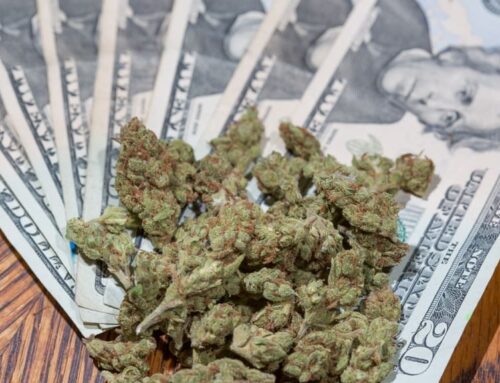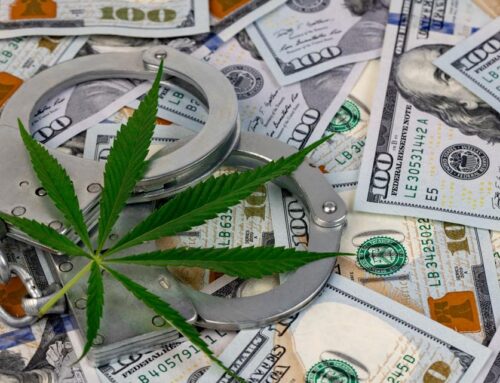‘California sober’? Cannabis may help limit alcohol consumption, study shows
November 19, 2025
Smoking marijuana can lead to markedly lower short-term alcohol use, according to a first-of-its-kind study that adds a new layer to the debate over the “California sober” philosophy.
Participants who smoked cannabis consumed between 19% and 27% less alcohol afterward than those who smoked a placebo, according to a paper published Wednesday. The study is believed to be the first randomized controlled trial measuring the impact of marijuana use on alcohol consumption.
But in an interview, the study’s lead author, Jane Metrik, warned against interpreting the findings as a validation of marijuana as a less harmful substitution for alcohol, particularly in people who meet criteria for alcohol use disorder or wish to reduce their drinking.
“Under these controlled conditions, people are reducing alcohol consumption after smoking cannabis,” said Metrik, a psychologist and researcher at Brown University. “We don’t know yet if that actually translates to fewer alcohol-related harms.”
She added, “It’s far too early to recommend cannabis as a safe or effective substitute or harm reduction alternative to alcohol.”
Still, the research provides a new data point for a substantial population of Americans who have sought to reduce or eliminate their alcohol consumption by switching to marijuana, a strategy commonly known as “California sober.”
The strategy is controversial in recovery and public health circles. With 178,000 deaths annually attributed to alcohol consumption in the U.S., many experts view reducing alcohol use as worthwhile even if it requires the help of another substance. Cannabis use, while not directly associated with deaths, is linked to higher overall mortality as well as increased risk of certain psychiatric diseases.
But even aside from the cost-benefit of switching marijuana for alcohol, experts cast doubt on whether it’s truly possible.
John Kelly, an addiction researcher and Harvard University psychiatry professor who was not involved in the study, called the paper a “rare, well-controlled study,” but cautioned that the promising short-term results are unlikely to translate to a long-term public health victory.
Among people who attempt to substitute marijuana for alcohol, he said, three scenarios typically occur: Their use of cannabis becomes a harmful addiction in and of itself; they find cannabis unsatisfying and return to alcohol; or they resume using alcohol but continue heavy marijuana use, making their behavior more harmful than before the attempted switch.
“Even though results suggest potential for brief short-term benefit from switching one drug for another, as a long-term solution, we do not see this working yet for most patients for whom their primary drug has caused them significant impairment and/or distress, as they remain unable to use at lower levels over the long term,” Kelly said.
The study focused on people who use cannabis and also engaged in heavy episodic drinking, or binge drinking, at least once per month for the past year: at least five drinks in a sitting for men, or four for women. Participants were not seeking treatment for either cannabis or alcohol use disorder.
After being provided with marijuana, participants were offered up to eight alcoholic beverages over a two-hour span. They also participated in a “choice task” that awarded them $3 for every drink they did not consume.
Study participants who smoked marijuana with a 7.2% concentration of THC, its most psychoactive ingredient, consumed 27% less alcohol than those who smoked a placebo cigarette, and participants who smoked marijuana at a 3.1% THC concentration drank 19% less.
Participants who consumed the higher-potency cannabis also waited longer before drinking: 33.4 minutes, on average, compared to 22.5 minutes in the placebo group.
The study was funded by the National Institute on Alcohol Abuse and Alcoholism, and sourced marijuana at specific THC concentrations from the National Institute on Drug Abuse.
Overall, the researchers cautioned that cannabis use is typically linked to negative outcomes in people who also consume alcohol, including risky driving, psychiatric risk, and worse treatment outcomes for alcohol use disorder. Some studies, however, suggest that marijuana use is associated with lower alcohol use overall, particularly among heavy cannabis users or when cannabis is used first.
Future studies, she said, include long-term observational studies as well as testing cannabis with CBD as opposed to THC as a mechanism for reducing alcohol use.
“We did demonstrate these short-term reductions, these acute reductions, in the laboratory, but what we don’t know is what happens over longer periods of time,” Metrik said. “It’s definitely a really promising signal, and it sets the stage for the next line of work.”
STAT’s coverage of chronic health issues is supported by a grant from Bloomberg Philanthropies. Our financial supporters are not involved in any decisions about our journalism.
Search
RECENT PRESS RELEASES
Related Post



